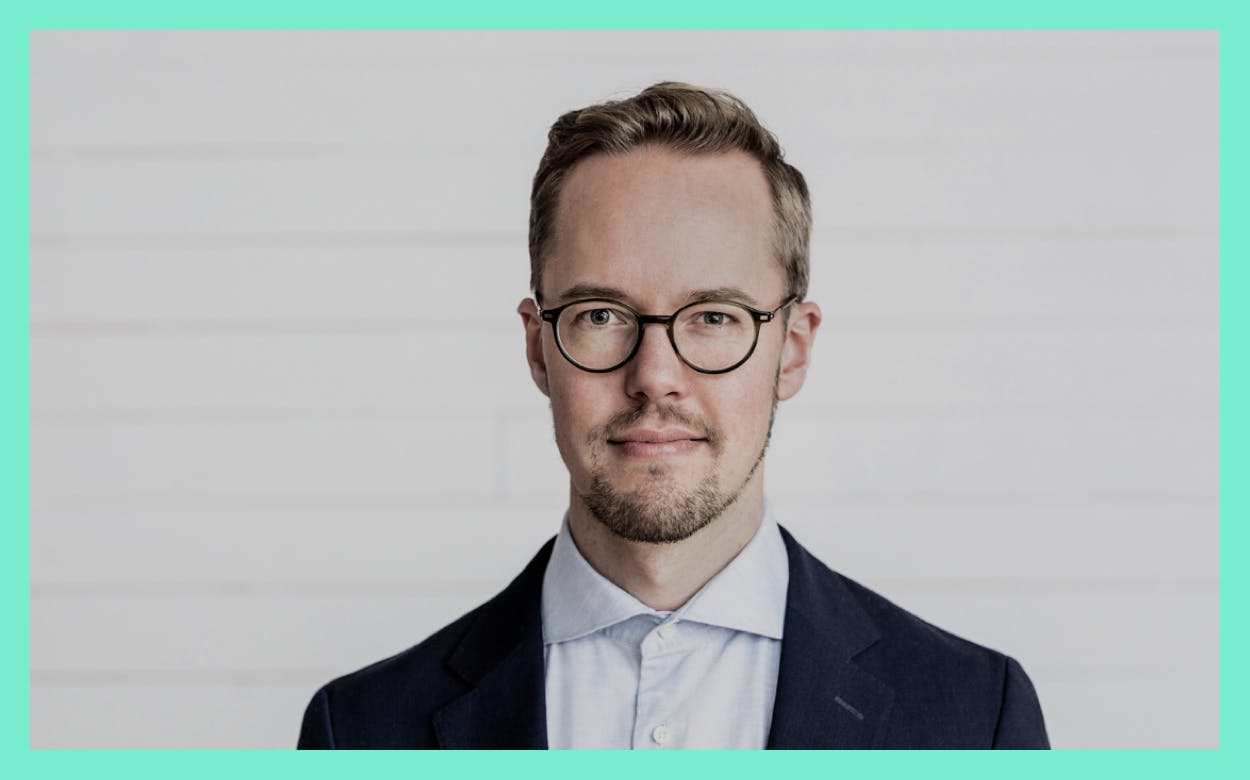As a Clinical psychologist with a BSc in Computer Science, he has made it his mission to develop innovative solutions to treat mental health across the world. As a result of his ethos, he co-founded Flow Neuroscience, a neurotech company with a focus on empowerment, accessibility and compassion. The first product born from this was Flow, the only medically-certified device to treat Major Depressive Disorder combining brain stimulation with behavioural therapy. Personally, Daniel wants to normalise conversations towards mental health, inspire young people to innovate and question traditional methods to build more safe and accessible tools.

Can you explain your job to a five year old?
My job is to hire brilliant people in a variety of fields and to organize resources so that the people at Flow can do what they do best: helping people with depression in reducing their symptoms. Flow helps people with different kinds of mental health problems. We offer to empower and treat themselves at home, without the interaction of a doctor or psychologist.
What excites you most about your job?
We are working at the forefront of psychology, neuroscience and technology. It excites me to combine these three fields together into great products that can be used by the patient himself. Even if it is quite high-tech to get brain neurons activated more in some areas and less in other areas, everybody has to be able to use the device - that challenge excites me!
Which trend will change the future of medicine?
I'm biased here, but brain stimulation is a very interesting treatment platform for many kinds of different diseases affecting the brain. It will change the way we treat many of these diseases in the future. We have seen TMS (Transcranial magnetic stimulation) making news in the recent past, but this can only be applied in a clinic or doctors office. Now we are seeing technologies like TDCS (Transcranial direct-current stimulation) that you can use at home, because of its low risk profile, opening up a huge amount of use cases. Pairing a low risk stimulation with personalisation is an area with huge potential.
Looking back, which trends have you missed or underestimated?
Within the imaging space, there are some trends which I missed or could not grasp in the beginning. For example there is a very interesting company in the U.S. called „Kernel“ which specializes in developing brain-recording technologies. They developed two types of helmets where the resolution of brain imaging is unprecedented. I didn't expect this breakthrough so quickly. Also, I did not expect the Brain Machine Interface industry to make progress at such a speed. It feels like a distant future, but it's happening as we speak!
Which MedTech initiative or startup deserves more attention?
The regulatory industry as a whole! Getting science and breakthrough technology from a study through a country's regulatory framework is very difficult and a long procedure. So every emerging company doing data collection or ensuring a smooth study process as well as formatting this in a way that the tech can get approved, is very much needed and maybe a bit underestimated. Companies like „Curebase“, (a service that simplifies and accelerates decentralised clinical studies and data collection in these studies) or „TrialBee“, (developer of a method to increase speed and accuracy of patient recruitment to clinical trials) really help products like ours to get regulatory approval quicker which is good for the patient.
Where would you put a million dollars?
I would put it in the “brain-machine interface” industry, whether it’s invasive or non-invasive. We have been examining the brain from a psychological point of view for a long time but we are now beginning to get properly sophisticated to do it from a neurological point of view and bridge it to psychology is a completely different approach. A million dollars could do a lot in this field since it still is very immature and only at the beginning of its trajectory.
What’s the best advice you’ve ever received?
It is a difficult one. I have read many biographies so several of the good advice I have picked up was not aimed at me specifically. One quote/advice pops up and I believe it is from Nietzsche: “He who has a why to live can bear almost any how”. It reminds me how important it is to figure out what you want to do before you start doing it. There are so many things in life that get easier if you are certain about the why.